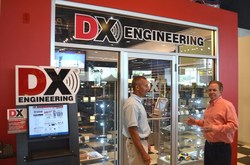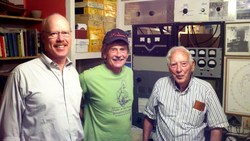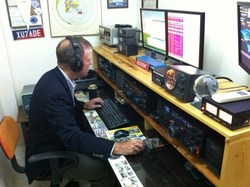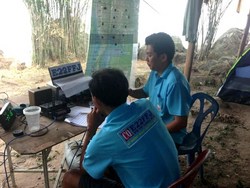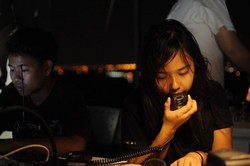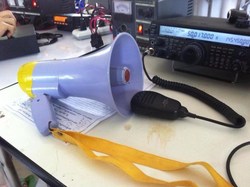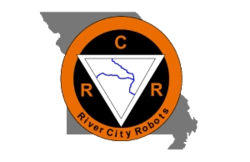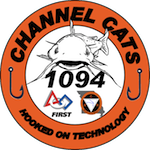 August 28, 2013 Editor: Ward Silver, NØAX | |||||||||
IN THIS ISSUE
NEW HF OPERATORS - THINGS TO DO Two medium-to-low speed CW contests are on the calendar - Labor Day Sprint and the Straight Key Party - along with the higher speed NS Sprint that happens each Thursday evening and the really higher speed North American CW Sprint on the evening of Saturday, Sep 7th. Think of these as aerobic classes for the CW operator. Yes, you'll sweat, but it will be a good sweat! BULLETINS There are no bulletins in this issue. BUSTED QSOS Art W6XD spotted a typo in the previous issue's CQ WW CW item in which the editor had "80" on his mind - the anniversary will be the 90th of the first Transatlantic two-way amateur contact. If any French or U.S. stations are interested in operating with those historic call signs mentioned last time, please let your editor know! CONTEST SUMMARY Complete information for all contests follows the Conversation section Aug 31-Sep 1
Sep 7-8
Don't look now but Tad K7RA has been bringing you the ARRL Propagation Bulletin for 22 years now! As Tad was quoted in ARLP033, "...your current author's stewardship of this bulletin began in 1991, not because of any particular expertise regarding astrophysics, but due to a similar sudden burst of solar activity, which happened to coincide with the former (and only other) author of this bulletin becoming too ill to write. The event was Thursday, January 31, 1991 when the solar flux reached 357. Someone needed to write about this. I had no idea when I alerted folks in Newington that it would be me." Wow - an SFI of 357? That hasn't happened lately...but I'm sure Tad would let us know if it did!
Hey, what's whizzing around up there - can you receive packets from satellites? If so, why not listen for the NASA PhoneSats that download messages via ham radio? "Crowd-sourced" science via ham radio resulted in these CubeSats that use a smartphone as their controllers. Practice in receiving these packets is great for next year's Field Day bonus points...just sayin'. Beginning the end of paper logging -- which hadn't even started yet -- August 26th marked the date that the first practical typewriter was patented. Ham handwriting would prove to be challenging in the future, however, even though "mills" were commonplace by the time radio was invented. Planning for the 2013 California QSO Party is well underway and the organizers hope to put all 58 California counties on the air during this largest of the individual state contests, on October 5 - 6th. Operators planning on activating a county can register their adventure via an online form. (Thanks, Bob N6TV, CQP County Coordinator)
IEEE's Spectrum magazine has a number of good articles in print or online. A particularly interesting article showed up this month - The Hunt for the Magnetic Monopole. And no, they are not writing about ground-plane antennas made of steel. Elsewhere on the magazine's website, there are a pair of articles (Part One, Part Two) about an engineer rigging up a simple SDR and discovering some HF radio signals. Before you drive home after the contest, consider that sleep deprivation makes for an impaired driver. If you've been awake for 18 hours, it's similar to having a blood alcohol content of 0.05 percent -- perilously close to the legal limit in many states and not really a good idea to be driving at that level no matter what the legalities may be. A 24-hour period without sleep takes you to about 0.10 percent and that is the legal limit in all states. Take a nap before heading for home! Web Site of the Week - Oleg UA9QCQ and friends have created a comprehensive website with a contest calendar, results compilations, and a Cabrillo format checker for logs to be submitted to contest sponsors. Watch for more features to be added. (Thanks, Zoli HA1AG) WORD TO THE WISE Tag - no, not "you're it!" but the Cabrillo data element. When you see "Cabrillo tag", the reference is to the line of information beginning with a word or words followed by a colon (:) and then some alphanumeric characters. For example, the tag containing your power level is "CATEGORY-POWER:" The "tag value" is whatever information follows the colon until the end of the line marked by a carriage return and line feed character (CR/LF). Continuing the example, there are three recognized (legal) tag values for power; QRP, LOW, and HIGH.
CQ Addis Ababa! Tomorrow (9 PM EDT, Aug 29th) Ken K4ZW shares his experience of operating the 2013 IARU contest with students of the Addis Ababa Institute of Technology from their club station ET3AA. Registered viewers will see the history of ET3AA and preparation leading up to the contest. This was the very first contest for many of the ET3AA students. See how they did! As a bonus, Ken will share some secrets of breaking DX pile-ups as learned from the DX side of things. Hams love maps and here are 40 that purport to "explain the world!" Well, maybe, and maybe not, but they are interesting, particularly maps 24 and 35 for hams. Speaking of maps, what are the endpoints of the planet's longest straight line over water - try Russia and Pakistan as illustrated by this YouTube video! Now that is long path. (Thanks, Doug NH6ZA) The results of the 2012 Radio Amateurs of Canada Winter Contest have been posted. Along with those results, the submitted logs list for this summer's Canada Day contest have also been posted in lists sorted by call and category -- avoid surprises later and check! (Thanks, RAC Contest Leaders, Sam VE5SF and Bart VE5CPU)
The 2013 Flight of the Bumblebees had 94 logs, some of the highest participation in the history of the contest. Operators from around the United States, Canada and from France were active during the four-hour event on Sunday, July 28. A link to the scores is posted on the Adventure Radio Society's website. (Thanks, Richard KI6SN) Full results for 2013 CQ Manchester Mineira DX Contest have been published. Sponsored by the CWJF Group, 815 participants from 95 DXCC entities took part. Log-checking validated about 94% of QSOs between more than 7000 call signs. "We are very happy with the world wide response to the CQMM DX Contest invitation. We hope to see you again in the contest next year." (Thanks, Luc PY8AZT, CQMM DX Contest Committee) Results of the 2013 Summer Stew Perry Contest can now be found on the Stew website at http://www.kkn.net/stew/. The results from last December are nearly done. Tree, N6TR will announce when they are completed. (Thanks, Tree N6TR) Tack JE1CKA reports that claimed scores for the 2013 JIDX CW Contest are now uploaded to the contest website. OPERATING TIP Work a contest one month before the real contest. The Sun rotates once every 27 days, so work a contest the month before the one you really want to concentrate on to experience the propagation you will have later. (From K9JY's "30 Days - 30 Ham Radio Contesting Tips" website) Guy K2AV found a particularly interesting view of propagation provided by the Reverse Beacon Network (RBN) watching a particular signal over an entire contest. The results document the propagation modes changing, particularly if conditions are quiet. He presents an example recorded during the 2011 ARRL DX CW contest on 40 meters when multi-multi stations were all calling CQ consistently. Start by logging on to the RBN's analysis page. "Enter 02/19/2011 as the date. Click on the Europe bar. When the station selection expands, click on S5ØARX. Enter NY4A, W3LPL, and K3LR under stations. Look at the 40 meter spots. On the right side of the graph for the...day, Saturday evening was for propagation one of those wide open very "smooth" propagation evenings analogous to reflections off a lake on a windless day. In particular, starting around 19Z or so, see how NY4A's strength goes through three jumps up to a plateau. You can see that LPL and LR climb them as well. These plateaus follow the propagation changing modes (numbers of hops and angle) as the band opens into the evening. Note that the NY4A 5-element long quad (at 84 feet center height, over 179 feet of catenary) engages all three modes cleanly and fully as they open, without any fading. If the path to EU from NY4A is cleanly open, the path must be open from LPL and LR distances. By common expectation LPL and LR should have a propagation advantage over NY4A. LPL and LR both have excellent stacked 3 or 4 element 40m Yagis. But note how as the fourth mode is engaged, both LR and LPL fall off because they are not cleanly engaging the mode, most likely because the increasing elevation angle is (moving) into a notch in the Yagi vertical pattern. Also note that NY4A carries the best signal for most of the 24 hours. This is an evaluation of the NY4A 40 EU quad vs.known excellent installations that is hard to argue with."
If you have a crank-up tower and are seeing some broken strands on the lifting cable, there are standards for when a wire rope should be replaced by OSHA and inspection tips from Safety Solutions. (Thanks, Grant KZ1W) Don WD8DSB recommends using Kynar-insulated wirewrap wire to wind binocular core receiving antenna transformers. The Kynar insulation resists being scratched by the core's sharp edges and it can be easily removed for soldering. Radioshack stocks the wire in 50-foot spools of different colors. Speaking of wire wrapping, Mike N2MS reminds us that the technique was very popular in the 60's and the 70's before the advent of multilayer printed circuit boards. The Apollo Guidance Computer's backplane was connected via wire wrap. Wirewrap is still quite practical for the homebuilder. The RF & Microwave Toolbox app from the Elektor magazine developers is now up to 55 different functions. It runs on devices using the Android OS and just costs a few euros. The Speag Time Domain Sensors are neat isolated probes for sampling E and H-fields from 10 MHz through 6 GHz. The probes are powered and send RF signals over fiber optics so they have minimal effect on the fields.
Here are some useful formulas for resistive signal splitters from EDN. These come in handy for dividing receive antenna signals between several radios without any matching transformers. The small amount of loss is usually not a problem on the lower HF bands. From the coherer to the cat's whisker to the semiconductor diode and now to a light-wave RF detector? Maybe you'll have to adjust the laser to shine on the most sensitive spot! (Thanks, Brian Fernandez) Gary W9XT presents his portable NVIS antenna design in this online presentation. A few more of his good talks are available as well. Vacuum tube fans will find the PSU Designer software useful, indeed. It is intended to help design simple, unregulated linear supplies using vacuum tube rectifiers. The software does not appear to be certified to run on Windows Vista or Windows 7, however. (Thanks, Paul W9AC) Did you ever wonder about "why 50 ohms?" Gary K9AY tackles the subject in this High Frequency Electronics editorial. (Thanks, Brad NK8J) You can add a couple more good propagation websites to those you've already bookmarked: one from VE3EN and the other from Jan Alvestad. Technical Web Site of the Week - Bits, tools, torches, saws, carts...what's not to like? The Toolmonger website has all sorts of information on...surprisingly...tools. Expand Your Comfort Zone The latest (September 2013) issue of Popular Science -- the self-titled "Go/Do/Learn" Education issue -- contains several articles that are required reading for all of us working toward the future of Amateur Radio, specifically, and for the advancement of scientific and technical understanding in society, broadly.
Beginning with the editorial, "An Awesome Education" by Jacob Ward, the discussion and articles address how students are embracing the Do-It-Yourself (DIY) approach not only to hobbies but learning in general. Columnist Erin Biba tackles the science classroom with "Lab Is In Session" on how to more effectively teach science, particularly the Next Generation Science Standards for K-12 students. A series of short features ("Amazing Labs") highlights some of the cutting edge lab environments in which science and engineering are getting done. (Such as the Explosives Engineering course at my alma mater - I applied for a spot like everybody else but like everybody else, didn't get in...) The centerpiece of the issue is the article "Short Circuit" about Quin Entyre, a 12-year-old electronics whiz who not only builds cool stuff using Arduino and other technology, but runs a small electronics company and teaches the Arduino to students up to several times his age. Early on, Quin has realized the power of mentoring, suggesting that older kids could tutor and mentor the younger kids, saying "It's fun to teach other kids, and little kids look up to older kids." The article also mentions Sylvia Todd, another 12-year-old maker (see her Super Awesome MINI Maker Show Playlist videos), the Hacker Scouts in Oakland, CA (which has turned into a bit of hacker and artist hot-spot on its own), and the FIRST Robotics Competition which has provided structure and focus for all sorts of technical activities on the part of student teams at all educational levels. Just last night at the St Charles Amateur Radio Club's monthly meeting, Jacob KDØSJV, and his FIRST robotics team, the River City Channel Cats, gave a great demonstration of their Frisbee-flinging robot (it throws HARD!) and explained how FIRST works. Jacob is an active new ham, studying for his Extra, and enthusiastically explained how much overlap there is between robotics and ham radio - electronics, programming, communication, building.
Nice, but what does this have to do with ham radio? Well, everything, basically. As I am (overly) fond of repeating, "These are our people!" Hands-on, multi-talented, informationally omnivorous -- that sounds like ham radio, where you can tinker away with everything from electronics to woodworking to geophysics! All at the same time, of course. Ham radio is an opportunity to learn that science and engineering are much, much more than a collection of party tricks - and so are robotics and microcontroller projects and hacking and making. If we are going to interest these young minds in ham radio, we're going to have to take ham radio to where they are. Ham radio has to be an activity they can "own" by themselves without requiring an adult to be constantly looking over their shoulders. I'll be talking with Jacob and other young hams about hybrids of Technician-level ham radio and robotics, for example. What local groups -- young and old -- are available for you to support? Maybe there's a "maker space" near you that could make use of your wireless skills and know-how. Can you weld? How about leading a learn to solder class? Show a group how much good stuff you can get out of tearing down broken electronic gadgets. Trust me, ham radio will soon enter the conversation and you won't have to be forcing it in there, either. Listen to what their interests are then go where the audience is. Let them add ham radio to their toolbox on their own. It won't do us any good to sit behind display tables with our arms folded, expecting them to push their way into our groups and activities. Will it be different? Of course, but then, ham radio was a different sort of thing when you got started in it, right? Unfamiliarity is an opportunity. Expand your comfort zone and you may be surprised at the enthusiasm with which you -- and ham radio -- are greeted! 28 August through 10 September 2013 An expanded, downloadable version of QST's Contest Corral in PDF format is available. Check the sponsor's Web site for information on operating time restrictions and other instructions. HF CONTESTS North American Sprint--CW, from Sep 8, 0000Z to Sep 8, 0400Z. Bands (MHz): 3.5-14. Exchange: Call signs, serial, name, and state. Logs due: 7 days. Rules CWops CW Open--CW, from Aug 31, 0000Z - See website. Multiple time periods. Bands (MHz): 1.8-28. Exchange: Serial and name. Logs due: Sep 21. Rules Colorado QSO Party--Phone,CW,Digital, from Aug 31, 1200Z to Sep 1, 0400Z. Bands (MHz): 1.8-28, 50+, CW--50 kHz above band edge; Phone--1.870, 3.850, 7.250, 14.250, 21.350, 28.450 MHz. Exchange: Call sign, name, and county or S/P/C. Logs due: Sep 28. Rules Tennessee QSO Party--Phone,CW,Digital, from Sep 1, 1800Z to Sep 2, 0300Z. Bands (MHz): 1.8-28, 50+, See website. Exchange: RS(T) and county or S/P/C. Logs due: Oct 2. Rules Labor Day Sprint--CW, from Sep 2, 2300Z to Sep 3, 0300Z. Bands (MHz): 1.8-28, 50. Exchange: RST, S/P/C, MI QRP nr or power. Logs due: 2 weeks. Rules ARS Spartan Sprint--CW, from Sep 3, 0200Z to Sep 3, 0400Z. Bands (MHz): 3.5-28. Monthly on the first Monday evening local time. Exchange: RST, S/P/C, and power. Logs due: 2 days. Rules 070 Club KA3X Memorial Sprint--Digital, from Sep 6, 8 PM to Sep 7, 2 AM. Bands (MHz): 3.5 at 3.580 MHz. Exchange: Call sign, RST and S/P/C. Logs due: Sep 21. Rules NS Weekly Sprint--CW, from Sep 6, 0230Z to Sep 6, 0300Z. Bands (MHz): 1.8-14. Every Thursday evening (local). Exchange: Serial, name, and S/P/C. Logs due: 2 days. Rules Russian Radio RTTY WW--Digital, from Sep 7, 0000Z to Sep 7, 2400Z. Bands (MHz): 3.5-28. Exchange: RST and oblast or WAZ zone. Logs due: Oct 1. Rules DARC 10 Meter Digital "Corona"--Digital, from Sep 7, 1100Z to Sep 7, 1700Z. Bands (MHz): 28. Exchange: RST and serial. Logs due: 2 weeks. Rules IARU Region I Field Day--Phone, from Sep 7, 1300Z to Sep 8, 1300Z. Bands (MHz): 1.8-28. Exchange: RS and serial. Logs due: 16 days. Rules - see IARU Society web pages Straight Key Party--CW, from Sep 7, 1300Z to Sep 7, 1600Z. Bands (MHz): 7. Exchange: RST, serial, category, name, age. Logs due: Sep 30. Rules Indiana Parks on the Air--Phone,CW,Digital, from Sep 7, 1600Z to Sep 7, 2400Z. Bands (MHz): 3.5-28, 50. Exchange: Category and Park ID or S/P/C. Rules Ohio State Parks On the Air--Phone,CW,Digital, from Sep 7, 1600Z to Sep 8, 2400Z. Bands (MHz): 3.5-28, 50, CW--45 kHz above band edge;Phone--3.825,7.200,14.250,21.300,28.450,50.145 MHz. Exchange: "Ohio" or S/P/DX and Park ID. Logs due: 30 days. Rules QCWA Fall QSO Party--Phone,CW,Digital, from Sep 7, 1800Z to Sep 8, 1800Z. Bands (MHz): 1.8-28, 50+. Exchange: Call sign, chapter, name, 2-digit year lic'd. Logs due: 30 days. Rules QRP ARCI Two Sidebands Sprint--Phone, from Sep 8, 1500Z - See website. Multiple time periods. Bands (MHz): 1.8-28. Exchange: S/P/C and ARCI member nr or power. Logs due: 14 days. Rules OK1WC Memorial Contest--Phone,CW, from Sep 9, 1600Z - See website. Multiple time periods. Bands (MHz): 3.5, 50, 144, First through fourth Monday of each month; see website for bands. Exchange: RS(T) and serial. Logs due: 7 days. Rules VHF+ CONTESTS Colorado QSO Party--Phone,CW,Digital, from Aug 31, 1200Z to Sep 1, 0400Z. Bands (MHz): 1.8-28, 50+, CW--50 kHz above band edge; Phone--1.870, 3.850, 7.250, 14.250, 21.350, 28.450 MHz. Exchange: Call sign, name, and county or S/P/C. Logs due: Sep 28. Rules Tennessee QSO Party--Phone,CW,Digital, from Sep 1, 1800Z to Sep 2, 0300Z. Bands (MHz): 1.8-28, 50+, See website. Exchange: RS(T) and county or S/P/C. Logs due: Oct 2. Rules Labor Day Sprint--CW, from Sep 2, 2300Z to Sep 3, 0300Z. Bands (MHz): 1.8-28, 50. Exchange: RST, S/P/C, MI QRP nr or power. Logs due: 2 weeks. Rules Indiana Parks on the Air--Phone,CW,Digital, from Sep 7, 1600Z to Sep 7, 2400Z. Bands (MHz): 3.5-28, 50. Exchange: Category and Park ID or S/P/C. Rules Ohio State Parks On the Air--Phone,CW,Digital, from Sep 7, 1600Z to Sep 8, 2400Z. Bands (MHz): 3.5-28, 50, CW--45 kHz above band edge;Phone--3.825,7.200,14.250,21.300,28.450,50.145 MHz. Exchange: "Ohio" or S/P/DX and Park ID. Logs due: 30 days. Rules QCWA Fall QSO Party--Phone,CW,Digital, from Sep 7, 1800Z to Sep 8, 1800Z. Bands (MHz): 1.8-28, 50+. Exchange: Call sign, chapter, name, 2-digit year lic'd. Logs due: 30 days. Rules OK1WC Memorial Contest--Phone,CW, from Sep 9, 1600Z - See website. Multiple time periods. Bands (MHz): 3.5, 50, 144, First through fourth Monday of each month; see website for bands. Exchange: RS(T) and serial. Logs due: 7 days. Rules LOG DUE DATES 28 August through 10 September 2013
ARRL Information Click here to advertise in this newsletter, space subject to availability. Your One-Stop Resource for Amateur Radio News and Information ARRL membership includes QST, Amateur Radio's most popular and informative journal, delivered to your mailbox each month. Subscribe to NCJ - the National Contest Journal. Published bimonthly, features articles by top contesters, letters, hints, statistics, scores, NA Sprint and QSO Parties. Subscribe to QEX - A Forum for Communications Experimenters. Published bimonthly, features technical articles, construction projects, columns and other items of interest to radio amateurs and communications professionals. Free of charge to ARRL members: Subscribe to The ARRL Letter (weekly digest of news and information), the ARES E-Letter (monthly public service and emergency communications news), Division and Section news -- and much more! ARRL offers a wide array of products to enhance your enjoyment of Amateur Radio. Visit the site often for new publications, specials and sales. Donate to the fund of your choice -- support programs not funded by member dues! Reprint permission can be obtained by sending email to permission@arrl.org with a description of the material and the reprint publication. ACKNOWLEDGEMENTS ARRL Contest Update wishes to acknowledge information from WA7BNM's Contest Calendar and SM3CER's Contest Calendar. | |||||||||
